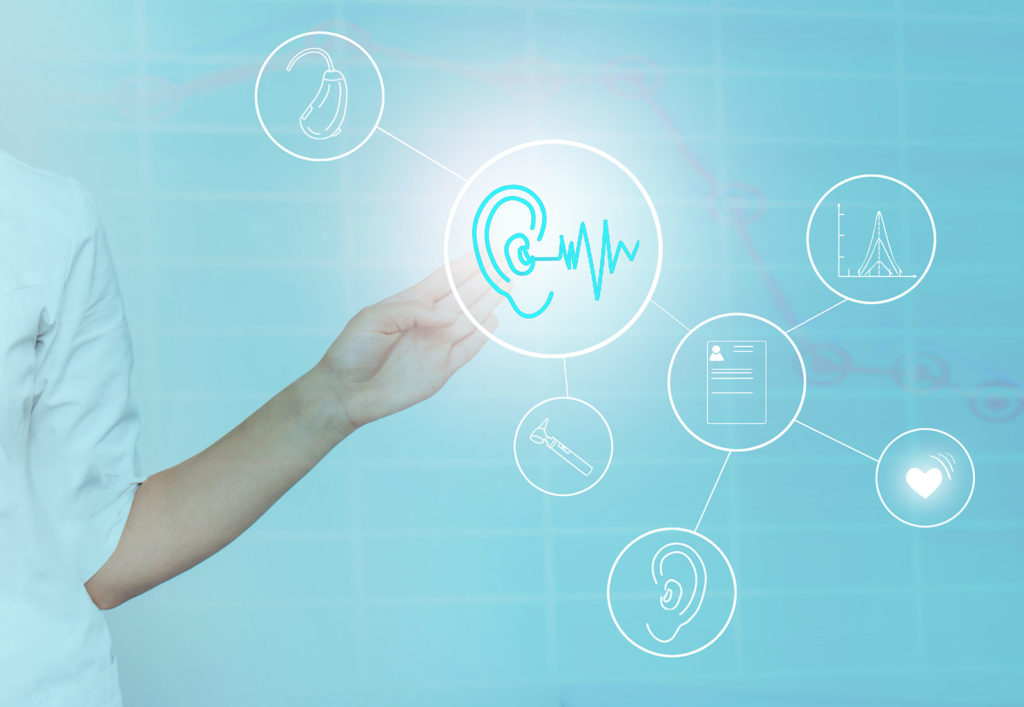
Introduction
The field of hearing healthcare is continuously evolving, driven by technological advancements, scientific research, and a growing awareness of the importance of hearing health. In this blog post, we will explore some of the exciting trends and predictions that are shaping the future of the hearing industry, including hearing aids, ENTs, and audiology.
- Artificial Intelligence (AI) Integration
Artificial Intelligence is revolutionizing various industries, and hearing healthcare is no exception. AI-powered hearing aids have the potential to learn and adapt to an individual’s listening preferences and environments, providing personalized sound processing. These smart devices can automatically adjust settings, reduce background noise, and enhance speech clarity, making communication effortless in various challenging situations.
- Telehealth and Remote Care
Telehealth has gained significant momentum in recent years, and it is becoming an essential part of hearing healthcare. Remote care allows audiologists and hearing aid technicians to conduct virtual consultations, monitor hearing aid performance, and make adjustments remotely, ensuring patients receive timely support, regardless of their location. This trend is especially beneficial for those living in rural or remote areas with limited access to audiological services.
- Internet of Things (IoT) Connectivity
The Internet of Things is transforming the way we interact with technology. Hearing aids equipped with IoT capabilities can connect to other smart devices, such as smartphones, TVs, and home systems. Users can stream audio directly to their hearing aids, answer phone calls with a tap on their ear, and even adjust hearing aid settings through dedicated mobile apps, providing seamless integration with their daily lives.
- Focus on Preventive Hearing Healthcare
As awareness grows regarding the impact of hearing health on overall well-being, there is an increasing focus on preventive measures. Audiologists are advocating for regular hearing screenings to detect issues early on and implement measures to protect hearing, such as custom hearing protection for musicians, industrial workers, and sports enthusiasts.
- Personalized and Customizable Solutions
Every individual’s hearing needs are unique, and the future of hearing healthcare lies in personalized and customizable solutions. From custom-molded hearing aids that fit perfectly in the ear to hearing aid settings fine-tuned to a person’s specific hearing profile, advancements in technology enable tailored solutions for optimal hearing enhancement.
- Expanded Scope of Audiological Services
Audiologists are taking on broader roles in healthcare, collaborating with ENTs and other medical professionals to address hearing-related issues associated with balance disorders, tinnitus, and more. This interdisciplinary approach ensures comprehensive care and improved outcomes for patients with complex hearing and balance challenges.
Conclusion
The future of hearing healthcare is brimming with promising trends and possibilities. As technology continues to advance and awareness of hearing health grows, we can expect more personalized, connected, and efficient solutions to improve the lives of individuals with hearing loss. From AI-powered hearing aids to telehealth services, the hearing industry is poised to provide more accessible, effective, and comprehensive care to those seeking support for their hearing needs. Embracing these trends and innovations will undoubtedly contribute to a world where better hearing health becomes a reality for all.